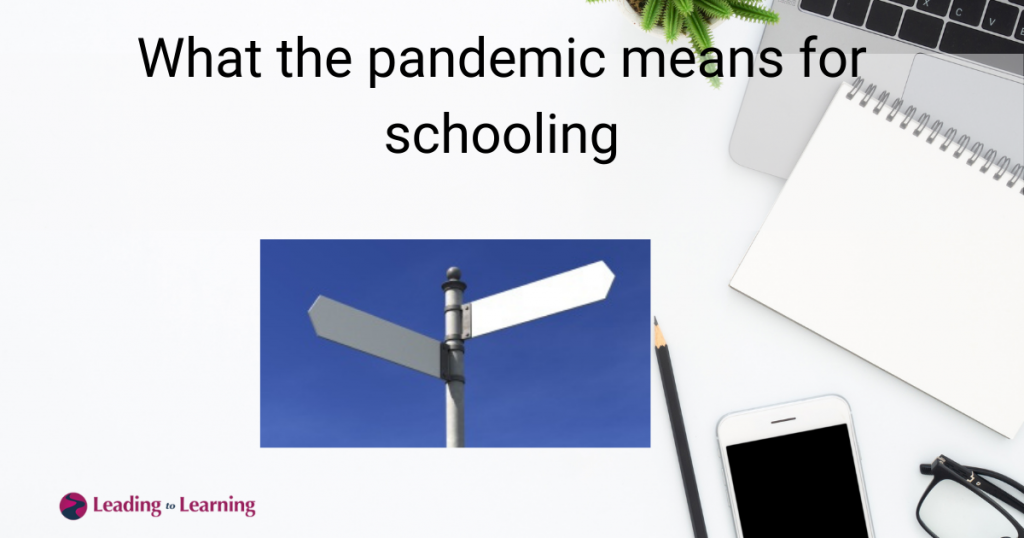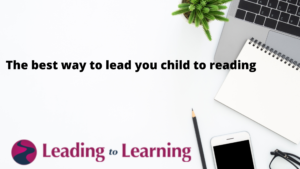The pandemic has changed how children learn. For very good reasons on-line learning has become a ‘thing’. Most students have experienced some form of on-line learning – some for the first time. Many teachers have had to create on-line and in-class lessons. Parents have become more involved and engaged in children’s’ learning. It has all been a sudden, and possibly not well thought out, experiment.
People are coping. They are adapting as well as they can to try to ensure children don’t fall behind and don’t miss out on the learning opportunities they need to succeed. It hasn’t been easy. Some of the adaptations have opened up many questions about teaching and learning and what it might look like in the future.
I don’t have all the answers but what I can tell you is that teaching and learning will never be the same again. There will be no return to schooling as it was in ‘the before times’.
So what has changed and what does it all mean for the future of schooling?
What it means for teachers
Teachers have had to expand their teaching skills.
Teachers are having to come to terms with teaching on-line. Some teachers seem to take to this new role quite well. I have heard glowing reports from parents about teachers who are making on-line learning fun and effective. Will teachers have to continue to do this as well as teaching in the classroom? Having a dual role is very taxing and I cannot see teachers being willing to continue teaching both in class and on-line. Will they have a choice about whether they teach on-line or not?
Teachers need extra support.
Teaching on-line is not the same as teaching face to face. Will teachers get extra training and support to make on-line lessons work? And who will create those courses? Who has the experience and knowledge to help teachers? And will all teachers be expected to take such a course or will the aim be to build a core set of teachers who teach solely on-line and who can offer support to other teachers? How are teachers going to continue to manage both in class teaching and on line teaching?
And the big question – will the adoption of on-line learning lead to a decrease in the number of teachers working with students?
**** There is not much you can do to help teachers develop new skills but you can be aware of what teachers are doing and its impact on your child’s learning.
What it means for schools
Schools have to change the ways they support teachers, students, and parents.
Technology is king
Not every child nor every family has ready access to the technology needed to make on-line learning work. Even when families have a computer sharing computers or iPads with several children is very restrictive. Families who want to continue with on-line learning are going to need access to technology. Some schools have offered iPads to families in need. If we want equity in the system this program might have to be expanded.
Learning systems need to be standardized
Many schools set up their own learning systems and helped teachers learn how to use it. Some School Boards offered a system to their teachers. But these systems were not standardized between Boards. If students changed schools everyone had to learn a new system.
Review of the curriculum
Is it possible to teach the same curricula on-line as is taught in class? What courses will be taught on line what should be taught face-to-face? Does the curriculum need changing to account for this new way of learning?
Class sizes
If students are learning on line can class sizes be reduced? Might on-line learning lead to better support for students?
Support for teachers
How will schools support teachers who are teaching on-line at least part of the time? Will they allow teachers time to access special training? Will one teacher in the school be responsible for checking that on-line learning is working? Or will teachers be expected to muddle through and do the best they can?
*** Is your child’s school adapting to the new normal? How can you help?
What it means for parents
Parents are having to juggle helping children learn with family life and maybe a full time job. And they are doing this without much support. This can’t continue.
A new role for parents
Parents will have to rethink how they support their child’s learning. At a minimum they will have to learn how to use the on-line learning system and learn how to help their child use it effectively. They will have to learn a new way of contacting teachers and letting them know about any learning issues their child is having.
But on-line learning can be a plus for parents. Helping with lessons will give them information about what their child is learning – something many parents complained they never got.
Implications for family life
On-line learning means children are at home for all or part of the day. How are working parents going to handle this? Older students can be independent learners but young students need the constant support of having a parent to call on. Families will have to rethink their schedules and priorities. Moms may have the added burden of supporting their child while running the family and maybe holding down their own job.
Parents need to know how to limit the stress that comes with helping children learn on-line, both their own stress and that of their child.
Are parents getting support?
Who is helping parents adjust to this new way of working? Does the school have the ability to provide parents with the support they need? If not where are parents getting the information and advice they want? Ate we asking too much of parents to handle children learning on line without giving them any help to adjust to this new way of learning?
Teaching children new skills
Parents need to help children learn the skills they need to become independent learners. This includes helping children learn to focus and adapting teaching materials to a child’s preferred way of learning. You need to know how to motivate your child to get work done.
*** Are you ready for your new role? Do you need to change how you help your child?
What it means for students
Students will need to adapt to learning on-line. This means they will need to develop the skills that help them become independent learners, able to focus on their work and keep themselves motivated to complete the work.
Some children will prefer on-line learning to in class learning, depending on their preferred learning style. Students who are Self Smart – (who like learning on their own) – or Number Smart – (who like to learn in a logical, structured way) could adapt well to learning on-line.
Students who are mainly People Smart (who like to bounce ideas off others) or Body Smart (who learn best when moving) might not be so happy with on-line learning and may struggle to learn.
Students who are already struggling to learn may find it more difficult to get the support they need to succeed. In that case parents are going to have to take an active role in getting extra support for their child. The best way to do this is to discover exactly what help the child needs and then how to provide it. Guessing what support the child needs rarely leads to success.
Learning on-line is a solitary affair. Children miss the social interaction that schools provide. How can parents and teachers ensure that students who learn on-line get the social connections to develop the skills they need to become valuable members of society?
*** Does your child have the skills needed to be an independent learner? Do you know how to help him or her develop them?
The pandemic isn’t over yet.
Teaching and learning have changed in response to health issues. When these health issues dissipate we will be left with a new approach to education. I hope that we can take all the good things that have happened and integrate them into a new and better system of helping children learn.
How are you going to adapt to these changes? More importantly, how are you going to help your child succeed in this ‘new normal’?
Check out the courses on my site. They can help you take the stress out of all these changes






